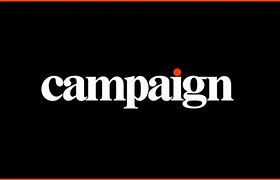Campaign magazine: How have US tariffs affected the ‘big six’ holdcos’ stock market performance?

In this recent article in Campaign magazine, Lorna Tilbian contributes her thoughts on the impact of US tariffs on Adland’s ‘big six’ networks. The full article which was published on 10 April follows, with thanks to Campaign for their permission to republish here:
US President Donald Trump sent the markets into freefall when he introduced extensive tariffs on 2 April.
With a 10% baseline tariff for all countries, and custom tariffs for the “worst offenders”, US stock market index S&P dropped by more than 10% following the announcement.
Adland’s “big six” netwroks – WPP, Omnicom, Publicis Groupe, IPG, Havas and Dentsu – were affected from 2-9 April 2025, with Publicis recordign a decline in its share price of 12% and Dentsu 11.9%. Omnicom and IPG were the least affected, thought to be a result of their expected merger.
Four of the six networks’ share price also declined by more than 20% since the start of the year.
Media analyst Lorna Tilbian said that “all have underperformed”, as discretionary consumer spend has come under pressure and big tech companies have spent on data centres rather than marketing and advertising.
This story was developed before US President Donal Trump announced a 90 day pause on the implementation of higher tariffs yesterday (9 April), with a universal 10% tariff on each country apart from China (where tariffs have been increased to 125%, effective immediately).
Campaign has updated the figures where possible, with more volatility expected.
WPP
WPP, which has its headquarters in the UK, has faced the biggest decline in tis share price since the start of the year (-40.3%) and suffered an 11.4% decline since Trump’s tariffs were introduced, behind Publicis and Dentsu.
Its shares suffered at the start of the year after its 2024 revenue growth came in at the bottom end of its forecast.
WPP’s overall revenue, less pass-through costs, fell 1% to £11.4bn in 2024, with Q4 returning the worst performance at -2.3%.
Ian Whittaker, managing director and owner of Liberty Sky Advisors, agreed that the reason for the drop was because it “underperformed” and its guidance for 2025 was “poor”.
But he also noted that WPP did not face the biggest decline since Trump announced his tariffs on 2 April. He said: “There’s a bottom to the price and that’s probably what you’re seeing here.”
He added that at a “certain point no matter how negative the news flow is”, people invest because the stock is “cheap”.
Since Trump announced a delay to the tariffs, WPP’s stock price opened at 550.39GBX this morning (10 April), a 10.9% increase on the previous day’s close.
Havas
Havas’ stock market share price suffered the second biggest decline since the start of the year, declining by 27%.
The network reported a drop in organic net revenue of 0.8% for Q4 2024 and all of 2024 in March of this year. It was the first set of results since its spin-off from parent company Vivendi.
The network’s share price declined by 8.5% from 2-9 April, but opened at €1.27 this morning, a 6.7% increase on yesterday’s close.
Publicis
Publicis also wasn’t immune to economic uncertainty, despite annual revenue growth of 5.8%, with its share price declining by 26% since the start of the year.
Whittaker said: “Publicis has managed to outperform because it’s got a different strategy, but the general macro trends that impact all the agencies still apply to it.”
It experienced the biggest decline of the networks, at -12%, since 2 April.
Another analyst noted that as a “lead performer” Publicis had further to fall than its peers, despite outperforming them.
This morning, however, the network opened at €85.86, a 12.4% increase on yesterday’s closing price.
IPG and Omnicom
IPG (formerly Interpublic) and Omnicom have declined markedly less than other agencies, with IPG’s share price falling by 11.2% and Omnicom’s by 11.5%.
It follows news that Omincom had agreed to buy IPG in December 2024, and expected to make $750m (£580.5m) in “annual cost synergies”. The deal is currently on track to close in the second half of 2025.

